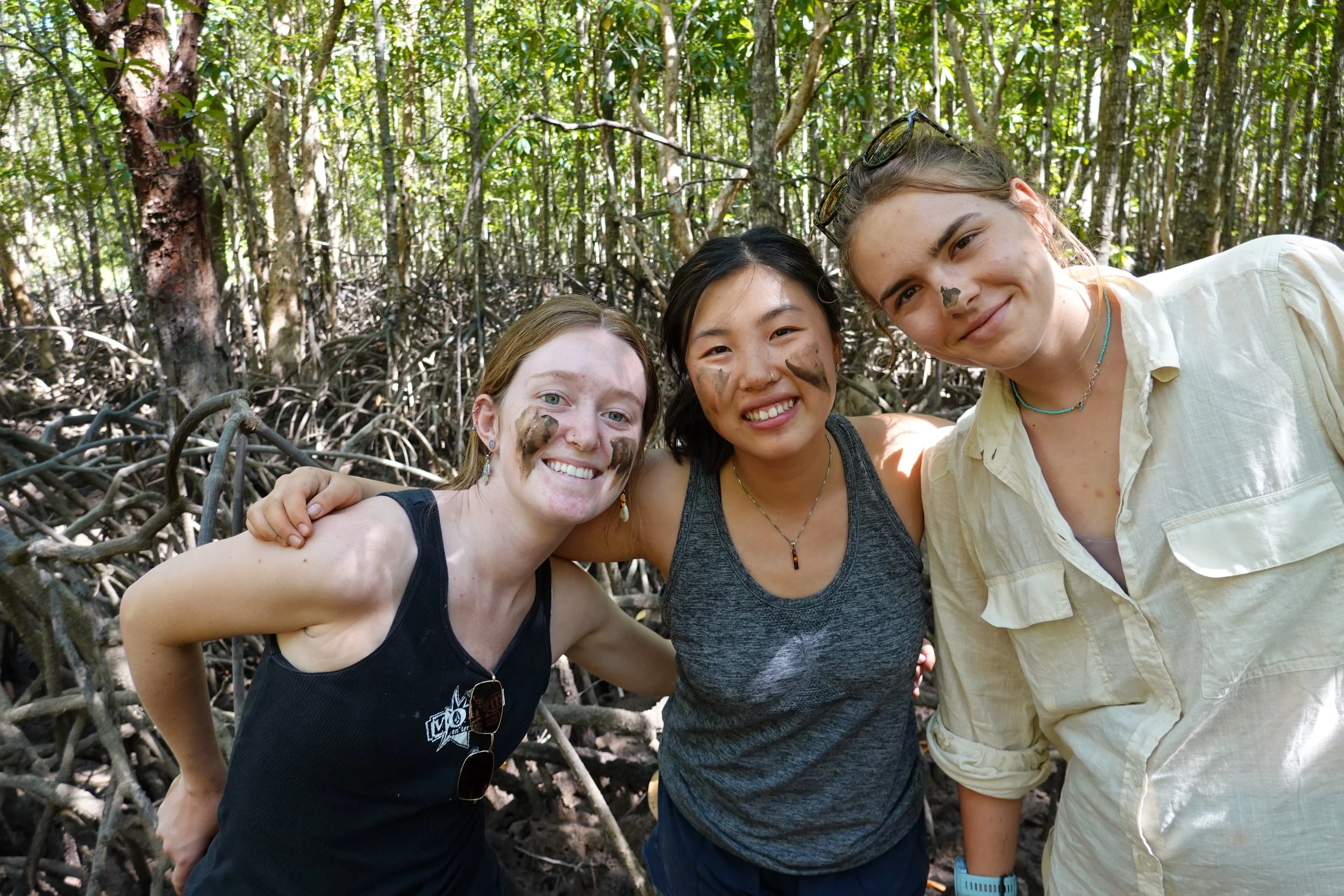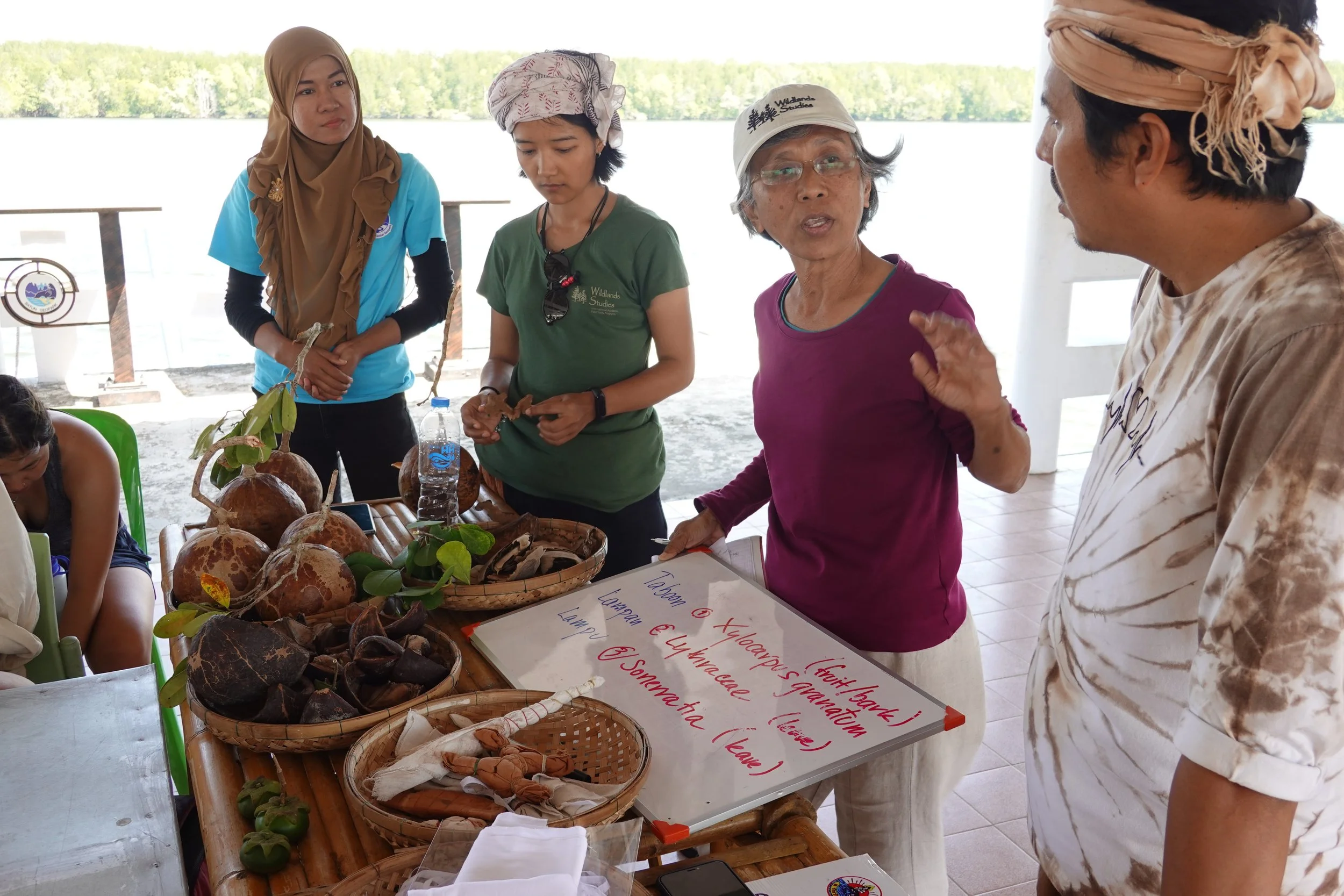Program Details
Location: Jakarta, Indonesia
Dates: Summer 2026: June 23—August 5, 2026
Applications: Accepted on a rolling admission basis
Accommodations: Primarily camping or rural lodge
Credits: 15 quarter credits or 10 semester credits
Language: English instruction
Courses: Environmental Wildlands Studies
Prerequisites: One college level course in environmental studies, environmental science, ecology or similar. 18 years of age
Program Costs
Indonesia Summer 2026
$ 150 Application Fee
$ 7,750 Program Fee
$ 4,850 In-Country Logistics Fee
$ 2,050 Estimated Airfare and Mandatory Travel Insurance
$ 500 Estimated Food and Personal Expenses
$15,300 Total Estimated Cost
Summer 2026: Program fees due by May 1, 2026
The Program
Join us in Indonesia, an incredibly diverse archipelago comprised of vibrant tropical forests, turquoise seas, and a mosaic of cultural groups. Our program will investigate four islands: Java, Sumatra, Bali and Lombok. Covered with ancient volcanoes, massive swamps, and rainforests that shelter elephants, tigers, rhinos, and great apes, these islands provide the perfect backdrop to study tropical ecology, island biogeography, and conservation, all while being surrounded by spectacular reefs that are part of the Coral Triangle – the world’s most diverse marine ecosystem.
We start in Java, Indonesia’s economic center and the world’s most populous island. As we transect from volcanic peaks to lowland agricultural areas, we will focus on Java’s unique ecology, tropical rainforests, and wildlife conservation, while learning how this island balances development with conservation. Mountain peaks and active volcanoes will be our classroom as we identify ecological gradients while ascending into the cloud forest and study ecological succession on recent lava flows. In Java’s lowlands, we will visit organic and sustainable farms to understand Indonesia’s agricultural practices, and we will reflect on how volcanic eruptions have shaped Indonesian culture. We will spend time exploring national parks, some of which are the last refuge for rare species such as the Javan rhinoceros, and we will take a deep dive into the nation’s cultural history through visits to museums and temples.
On the island of Sumatra, we will examine the complexities of human-wildlife coexistence for Indonesia’s iconic megafauna who are trying to live in a shrinking landscape. Notably, we plan to visit a rescue center for Siamangs, the largest of the gibbons; assist with camera trap monitoring of local animal communities in the Issau Issau wildlife preserve; and visit Way Kambas National Park, home to elephants, tigers, and most of the world’s remaining Sumatran rhinos. Intertwined, we will examine terrestrial concerns such as carbon cycles at an active peatlands restoration project.
Bali, the only island in the archipelago that is primarily Hindu, will be our next stop. We’ll learn about Bali’s unique history and fusion of cultures, visit a sanctuary where animals are rescued from the illegal wildlife trade and rehabilitated to the wild, and participate in a coral restoration program on one of the island’s degraded reefs.
Finally, we’ll take a ferry to Lombok, an island just east of Bali. Navigating the Lombok Strait, we will cross “Wallace’s Line,” the demarcation that naturalist Alfred Russell Wallace drew to differentiate Asia from Australia based on biogeographical principles. Despite being separated by only a few nautical miles, Bali and Lombok were never connected, causing the species composition of the islands to evolve very differently. Our field activities conclude with a comprehensive biodiversity transect, allowing us to compare surveys conducted on the other islands. We end with snorkeling Lombok’s pristine reefs before returning to Bali, where the program concludes.
Our program utilizes Indonesia’s extensive ferry system, with camping and short stays in rural villages to access our field sites. From primary rainforests in national parks, restoration sites in small villages, sacred, high-altitude volcanoes, and stunning beaches fronting enchanting coral reefs, we’ll trek, boat, and snorkel to observe the country’s wildlife, understand tropical ecology, and immerse ourselves in Indonesia’s rich culture.
Academic Syllabus
Student Program Manual
Erik Iverson
lead instructorPhD in Ecology, Evolution, and Behavior, University of Texas at Austin, 2025
Erik is an evolutionary ecologist who studies how organisms adapt to the environment, with the goal of predicting species' responses to climate change and preventing extinctions. His PhD centered on the physiology of birds across the Amazon to the Andes climate gradient, and on the genetics of freshwater fish from Mexico's Sierra Madre Oriental. Erik is passionate about wild ecosystems, especially tropical forests, mountains, and savannas, and has conducted fieldwork in Australia, South Africa, Mexico, Peru, Ecuador and the US. In his free time Erik enjoys getting lost in the deserts of the Southwest, playing music, and advocating for nature. Erik co-leads our Australia and Chile Programs and will initiate a program in Indonesia in Summer 2026.


















